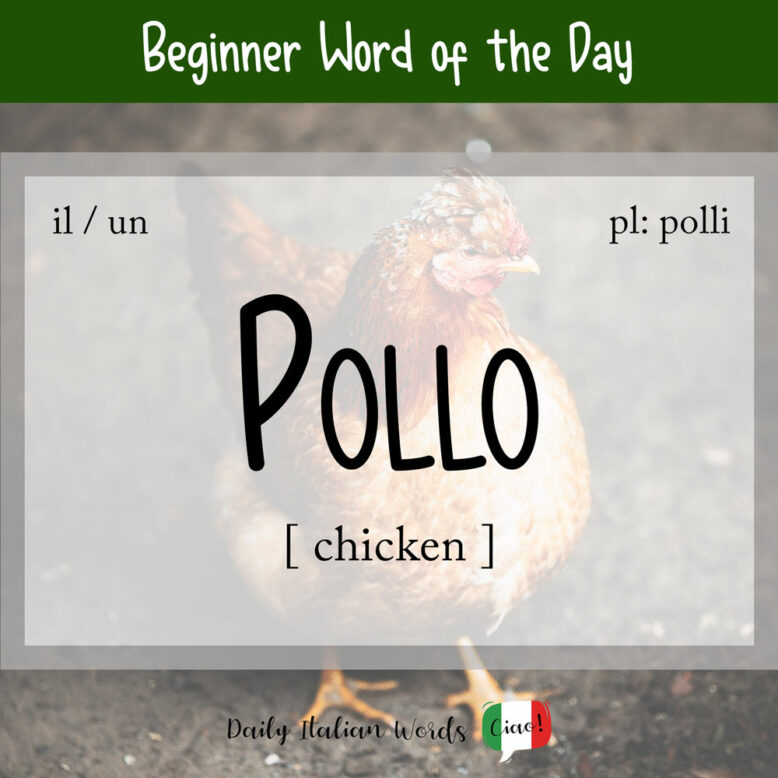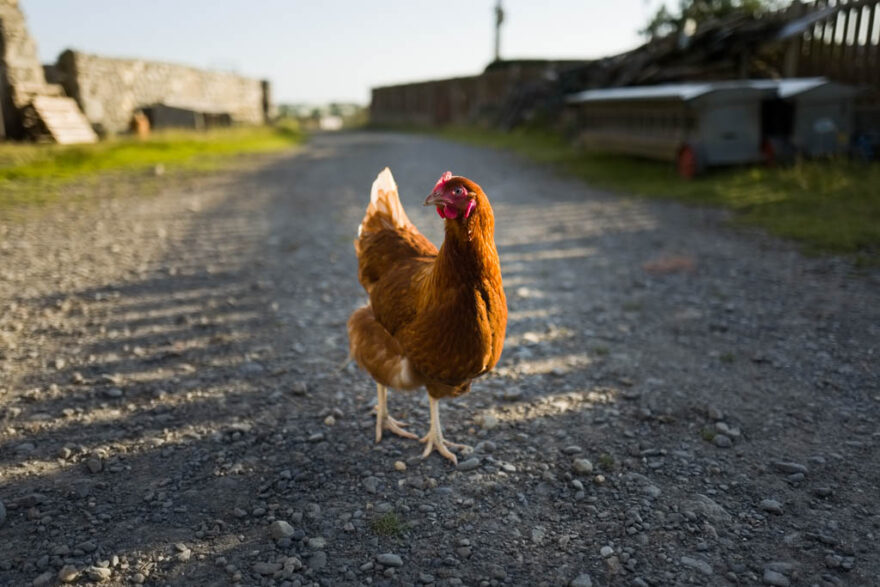The generic word for chicken in Italian is pollo (plural: polli). It can be used to refer to the bird itself or the meat.

Ci sono tanti polli in giardino.
There are lots of chickens in the garden.
Stasera mangiamo il pollo arrosto per cena.
We’re eating roast chicken tonight for dinner.
When you want to specify whether the chicken is male (rooster / cock) or female (hen), you can use the words gallo and gallina respectively. A young rooster or cockerel is known as a pollastro.
In English, you can use the word chicken when talking about a cowardly individual, whereas in Italian, pollo can be used to describe someone who is foolish or easily deceived. The related expression pollo da spennare (lit: a chicken to pluck) is how Italians say sitting duck or easy target.
Quel pollo ci è cascato in pieno.
That chump completely fell for it.
There are many popular Italian dishes that feature chicken as the main ingredient. These include:
- pollo alla diavola = Italian herb roasted chicken
- fusi di pollo = chicken drumsticks
- pollo al forno = oven baked chicken
- pollo impanato = breaded chicken
- pollo alla cacciatora = hunter’s chicken

Idioms featuring ‘pollo‘
Essere come i polli di mercato
- literal : to be like market chickens
- meaning : to be mismatched
Conoscere i propri polli
- literal : to know one’s own chickens
- meaning : to know someone or a group of people well (often used for one’s children)
Pelare (qualcuno) come un pollo
- literal : to peel (someone) like a chicken
- meaning : to scam someone into spending a lot of money
Far ridere i polli
- literal : to make chickens laugh
- meaning : to be ridiculous, to do or say stupid things
Essere un ladro di polli
- literal : to be a chicken thief
- meaning : an unwise person, a poor thief
Heather Broster is a graduate with honours in linguistics from the University of Western Ontario. She is an aspiring polyglot, proficient in English and Italian, as well as Japanese, Welsh, and French to varying degrees of fluency. Originally from Toronto, Heather has resided in various countries, notably Italy for a period of six years. Her primary focus lies in the fields of language acquisition, education, and bilingual instruction.


